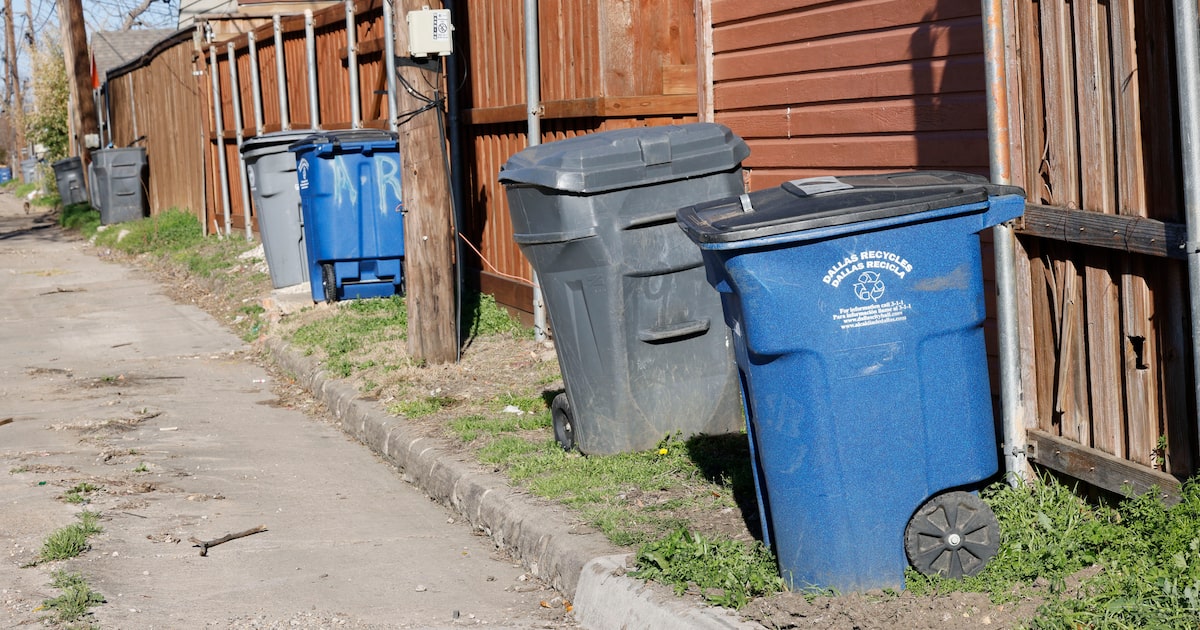For the second time since ending alleyway trash collection was proposed two years ago, the city is hitting the brakes again. The phaseout, which was scheduled to begin in January, is now on hold as the city seeks more feedback from the roughly 44,000 customers with narrow alleys across the city.
This back-and-forth on alleyway trash has gone on for too long. At some point, the city must decide to commit to keeping alleyway collection for the foreseeable future, or follow through on moving to curbside as planned. Dallas seems paralyzed by its inability to make a decision either way.
This summer, we supported the city’s plan to gradually phase out alley trash pickup. The city had planned to end alley service for about 26,000 households with alleys narrower than 9 feet, dead-end alleys longer than 200 feet and unpaved alleys. To address residents’ concerns about wheeling bins to the curb, the plan focused on neighborhoods where most homes have front driveways, making the transition more practical.
This seemed like a reasonable compromise — one that recognized the city’s concerns about workers’ safety in narrow alleys as well as residents’ accessibility worries. So why are we backtracking?
Opinion
Keeping alley collection is getting expensive. According to a September memo, continuing service for affected households could come with a monthly cost between $69.87 and $80.81 — up from the current $40.09 that all sanitation customers pay. Maintaining alley pickup would also require smaller trucks that can get in the narrow alleys and additional workers and drivers for the trucks.
In theory, if customers in certain neighborhoods are willing to pay more to keep alleyway pickup, the city could consider offering it as an optional premium service. There’s nothing wrong with wanting that convenience, but customers must be willing to pay the rising costs.
Still, it’s not clear how this would work in practice. Would decisions be made block by block? Would residents vote? It wouldn’t make sense to have alley collection on one street and curbside on the next.
Dallas’ sanitation director, Clifton Gillespie, said he doesn’t know what that might look like yet. For now, the city plans to survey customers to identify neighborhoods where support for continued alley service is strongest.
“We know that a substantial amount of the input, the feedback that we’re hearing is coming from certain areas of town,” Gillespie said. “We want to make sure that we’re getting that feedback from all customers who have 8- and 9-foot-wide alleys.”
The city is right to gather input, but as with any change, there will always be some who oppose it. Dallas’ hesitation to make a decision on alleyway trash only pushes the problem further down the road.
Another delay won’t make the transition any easier. Whether that means keeping alley pickup at a higher cost for customers who want the service or shifting to curbside collection citywide, Dallas should follow through.
